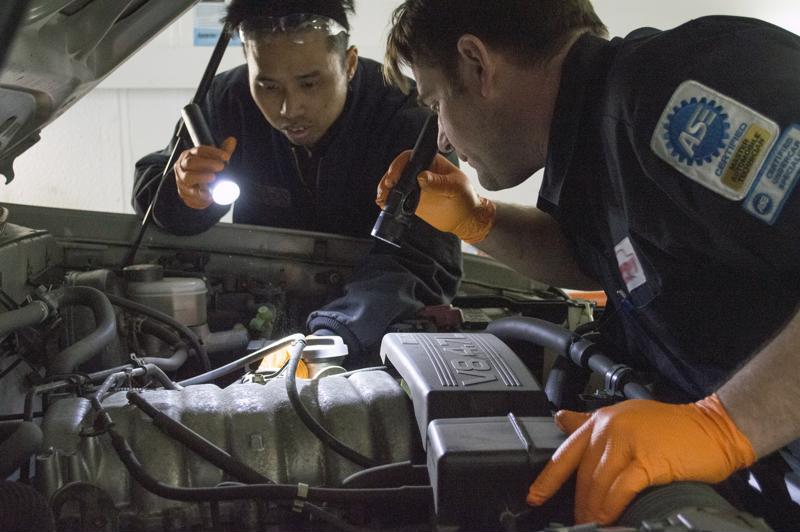If you have a car, your check engine light has probably come on for a number of reasons. So many in fact, that it can be tough to tell the reason behind it unless you're a pro with cars. At any rate, it's always best to have your vehicle inspected, as ignoring this warning sign can lead to pricey repairs down the road.
What is the check engine light?
Consumer Reports summarized that the check engine light is a part of the car's onboard diagnostics system. When a problem registers with this system, the little light known as the International Check Engine Symbol comes on to notify the driver. The vehicle takes note of the issue and stores it in code form. Auto shops are equipped with electronic scan tools that decode the problem, which is why it's a good idea to take the car in for service.
 Mechanics assess the damage with an electronic scan tool.
Mechanics assess the damage with an electronic scan tool.
Why does it turn on?
Here are some of the top reasons why the check engine light comes on.
"A missing gas cap is often the culprit behind the check engine sign."
- A damaged gas cap: According to Business Insider, a missing gas cap is often the culprit behind the check engine sign. Failure to replace it can make your gas evaporate and gas mileage decrease.
- Overheating: Sometimes a check engine light comes on if there's a serious problem with the car. For example, Motorist explained that it could indicate that the vehicle is overheating, which means you need to pull over immediately. It's best to do a quick inspection to determine if it's safe to continue driving or if you should call for a tow.
- Spark plug trouble: This device's job is to deliver electric current from the ignition to the combustion chamber, which is the location of the engine. Neglecting this part of the vehicle can result in costly repairs for several systems. Business Insider confirmed that spark plugs are often the root of the problem in several cases including problems with the ignition coils and catalytic converter.
How to handle it
Even if you know a thing or two about cars, these issues are nothing to sneeze at. Keep up on regular maintenance visits to reduce the risk of the check engine light coming on and be sure to bring your car in for service if it does happen. If you take good care of your car, chances are you'll only be without it for a few hours or a day while it's being repaired. However, if you don't stay on top of maintenance, these repairs or replacements could take days.